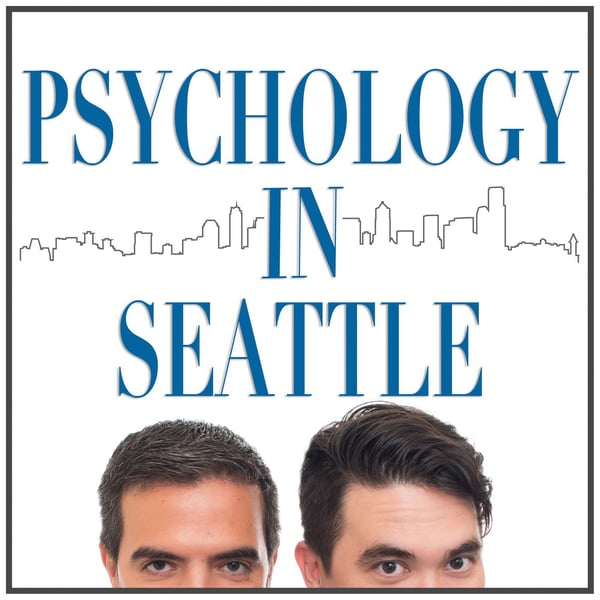Schema Therapy - Deep Dive
Psychology In Seattle Podcast
Kirk Honda
4.6 • 1.2K Ratings
🗓️ 30 August 2019
⏱️ 12 minutes
🧾️ Download transcript
Summary
Become a patron of our podcast by going to https://www.patreon.com/PsychologyInSeattle
Email: https://psychologyinseattle.squarespace.com/contact
The Psychology In Seattle Podcast.
Aug 30, 2019.
Access archive at: https://psychologyinseattle.squarespace.com
Music by Bread Knife Incident.
This content is for educational and informational purposes only. Although Kirk Honda is a licensed marriage and family therapist, this content is not a replacement for proper mental health treatment. Always seek the advice of your mental health provider regarding any questions or concerns you have about your mental health needs.
This show is part of the Spreaker Prime Network, if you are interested in advertising on this podcast, contact us at https://www.spreaker.com/show/3269717/advertisement
Transcript
Click on a timestamp to play from that location
| 0:00.0 | Psychology in Seattle. |
| 0:07.0 | Hey deserving listeners, today I'm going to do a deep dive on schema therapy. I find schema therapy to be a good theory. I like it. It's |
| 0:18.9 | practical, but it also can be very deep I think it's very useful it provides very specific examples |
| 0:27.6 | it's not this very amorphous theory you know psychodynamic theory, which I love, can be quite amorphous sometimes. |
| 0:36.2 | Whereas chemotherapy provides a very specific guidance on figuring out what one's issues are and how to help them. |
| 0:47.0 | And I've known about schema therapy for a long time and I've known the basic premise of it and thought I would like it as it's |
| 0:56.6 | an integrative theory of several theories that I like but I didn't realize I would like it |
| 1:01.7 | this much I really really like it and if I would have discovered this theory early in my career I might consider I might have eventually considered myself a schema therapist because it really is in line with the way that I think about people |
| 1:16.3 | and it has enough in there, enough integrated in there that it's not narrow and |
| 1:22.1 | limited. And at this point in my career I just have my own |
| 1:27.1 | identity and so it's kind of silly to like switch course at this point. Plus I feel like |
| 1:31.6 | I've been operating as a schema therapist for 20 years anyway, |
| 1:36.2 | having integrated other kinds of things. But anyway, yeah, I like schema therapy so much that I'm pretty |
| 1:42.0 | sure I'm going to start integrating it into some of my |
| 1:44.8 | courses at my university, particularly in my course on Family of Origin, which I |
| 1:50.6 | have novice graduate students analyze themselves and their family of origin, their childhood, |
| 2:00.8 | to discover their vulnerabilities as a person and as a therapist so that they can |
| 2:06.8 | understand their vulnerabilities when they are sitting with their clients. |
| 2:11.2 | And schema therapy provides a pretty distinct systematic way. |
| 2:16.5 | They even have measures that you can, you know, surveys, instruments you can fill out that, you can actually discover what your issues are, |
| 2:25.2 | what your maladaptive schemas are. |
| 2:28.2 | And I have been doing this kind of work with my students anyway to help them discover their issues in relation that they'll, you know, |
... |
Please login to see the full transcript.
Disclaimer: The podcast and artwork embedded on this page are from Kirk Honda, and are the property of its owner and not affiliated with or endorsed by Tapesearch.
Generated transcripts are the property of Kirk Honda and are distributed freely under the Fair Use doctrine. Transcripts generated by Tapesearch are not guaranteed to be accurate.
Copyright © Tapesearch 2025.

